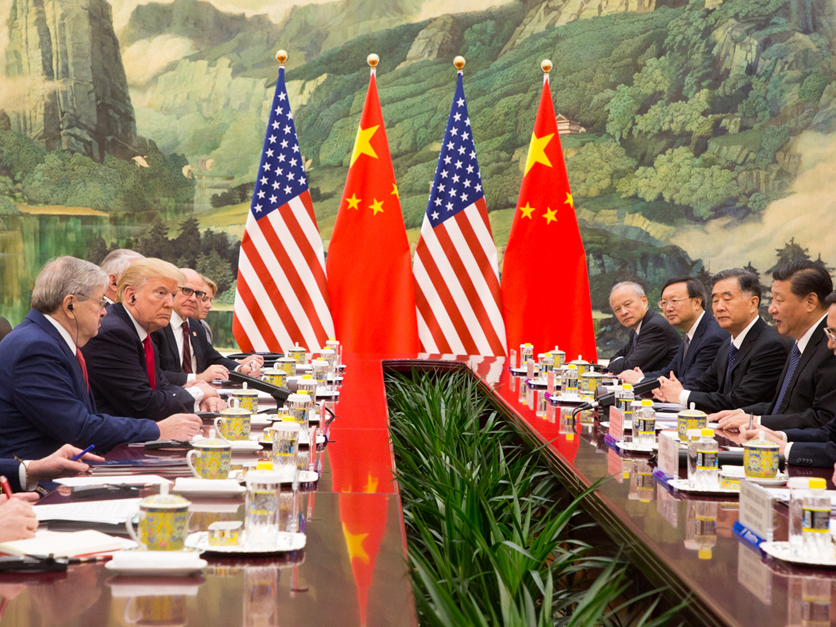China has agreed to make significant policy changes to tear down non-tariff barriers to U.S. farm commodities under the trade deal expected to be signed early next year, according to industry sources who were briefed on the pact and government officials with knowledge of the briefing.
Chinese barriers in the form of restrictive biotech approval policy, sanitary and phytosanitary regulations and food safety measures were all addressed in the trade pact that is expected to be signed by both governments next year. While many in the U.S. ag sector were pleased when the Trump administration announced that the "phase one" deal had been reached last week, there is still plenty of skepticism and a desire to see the details that have not yet been published.
“If they actually execute all these commitments, it will be amazing,” said one source who was on the China deal debriefing given by U.S. Trade Representative Robert Lighthizer. “(The Chinese) are known for not doing what they say they are going to do.”
Another source on the briefing teleconference said they were very pleased and encouraged by the number of policy changes that Lighthizer said China agreed to, but also stressed concern that China might not follow through with its promises.
“Of course, the proof is always in the pudding,” the source said, noting that many people won’t be satisfied until they see the deal in writing and the Chinese complying with it.
The sources interviewed spoke on the condition of anonymity because they were requested not to discuss the briefing publicly.
A key focus was on China’s opaque, burdensome and lengthy biotech trait approval process. China has agreed to make significant changes that will translate into major benefits for the U.S. ag sector.
Details of exactly how China will reform its biotech approval process were not divulged in the briefing, but the results of those changes will make it much easier for farmers to sell their crops to China in the future, industry and government sources tell Agri-Pulse.
Interested in more agreement on trade coverage and insights? Receive a free month of Agri-Pulse or Agri-Pulse West by clicking here.
“If you look historically at China, the non-tariff barriers have been the ones that restricted U.S. exports the most,” said Max Moncaster, an associate director with the National Association of State Departments of Agriculture. “In as much as this agreement addresses that, it will set the stage for a huge increase in our ability to sell products there.”
China’s asynchronous biotech trait approval process often delays the international marketing of new genetically modified crops for years after other countries like the U.S. have already issued an approval. China demands that new biotech traits go through the entire approval process elsewhere before Chinese officials even begin to study it.
Confirmation that the U.S. has been pushing China to change its biotech approval process was made early on. Lighthizer brought it up the first time the U.S. and China prematurely announced a trade deal back in October. On Oct. 16, when Lighthizer and Treasury Secretary Stephen Mnuchin were in the oval office with President Donald Trump and Chinese Vice Premier Liu He to announce a breakthrough in talks, Lighthizer noted that negotiators “corrected biotechnology issues” that would make it easier for “American farmers to be able to ship to China.”
Lighthizer and others in the briefing also discussed China’s promise to buy $80 billion worth of U.S. ag commodities over the next two years, but no mention of tariffs was made, industry and government sources confirmed.
The Chinese promise is calculated on a base of $24 billion in U.S. ag exports with the Chinese promise to increase that by $16 billion in 2020 and 2021.
“There was nothing discussed regarding tariffs,” said a source on the briefing call, who agreed with others that they would like to see both the U.S. and China begin to scale back the tariffs that have restricted trade during the trade war.
President Donald Trump said Friday in a tweet he’s been talking to Chinese President Xi Jinping as plans are made for the signing of a partial trade deal and China resumes “large scale” imports of U.S, farm commodities.
China last Friday approved several companies there to buy at least 1 million metric tons of U.S. soybeans without paying the 30% tariff that remains in place, U.S. Soybean Export Council analyst John Baize tells Agri-Pulse.
Those purchases have already begun, USDA data shows. The Foreign Agricultural Service reported Thursday an export sale of 126,000 metric tons of U.S. soybeans to China for delivery in the 2019-20 marketing year.
China, U.S. officials in the briefing earlier this week, also confirmed its intentions to fully implement the tariff rate quotas for billions of dollars of wheat, rice and corn imports that it pledged to set up in 2001 when it joined the World Trade Organization, U.S. officials said on the briefing call.
The U.S. took China to court in the WTO to complain that the TRQs were not being honored. The U.S. won that case earlier this year and China did not appeal the ruling.
For more news, go to: www.Agri-Pulse.com



